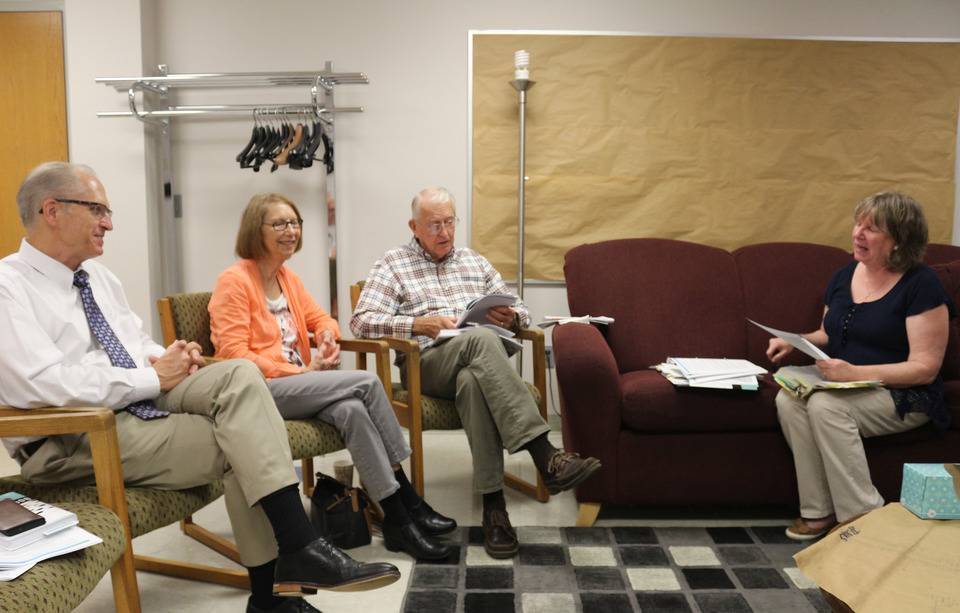Print
Weekly Devotion
11-23-25
Colossians 1:11-20
11 May you be made strong with all the strength that comes from his glorious power, so that you may have all endurance and patience, joyfully 12 giving thanks to the Father, who has enabled you to share in the inheritance of the saints in the light. 13 He has rescued us from the power of darkness and transferred us into the kingdom of his beloved Son, 14 in whom we have redemption, the forgiveness of sins.
15 [Christ] is the image of the invisible God, the firstborn of all creation, 16 for in him all things in heaven and on earth were created, things visible and invisible, whether thrones or dominions or rulers or powers—all things have been created through him and for him. 17 He himself is before all things, and in him all things hold together. 18 He is the head of the body, the church; he is the beginning, the firstborn from the dead, so that he might come to have first place in everything. 19 For in him all the fullness of God was pleased to dwell, 20 and through him God was pleased to reconcile to himself all things, whether on earth or in heaven, by making peace through the blood of his cross.
Gospel: Luke 23:33-43
33 When they came to the place that is called The Skull, they crucified Jesus there with the criminals, one on his right and one on his left. 34 [[Then Jesus said, “Father, forgive them, for they do not know what they are doing.”]] And they cast lots to divide his clothing. 35 And the people stood by watching, but the leaders scoffed at him, saying, “He saved others; let him save himself if he is the Messiah of God, his chosen one!” 36 The soldiers also mocked him, coming up and offering him sour wine 37 and saying, “If you are the King of the Jews, save yourself!” 38 There was also an inscription over him, “This is the King of the Jews.”
39 One of the criminals who were hanged there kept deriding him and saying, “Are you not the Messiah? Save yourself and us!” 40 But the other rebuked him, saying, “Do you not fear God, since you are under the same sentence of condemnation?41 And we indeed have been condemned justly, for we are getting what we deserve for our deeds, but this man has done nothing wrong.” 42 Then he said, “Jesus, remember me when you come in your kingdom.” 43 He replied, “Truly I tell you, today you will be with me in paradise.”
Opening Discovery
1. A distinction has been made between hard authority and soft authority, between formal influence and soft influence. The difference is between a formal authority or influence that compels obedience and an informal authority or soft influence that inspires from the inside. What experience have you had with these two kinds of authority/influence? At work, in the world? How would you evaluate these two kinds of authority?
2. How does that distinction play out in the Luke story?
Discover More about the Scripture
1. From the perspective of Rome and leaders, who was in charge? Who had the authority and how was it exercised?
2. From the perspective of the crowd, who had the authority?
3. From the perspective of Jesus, who had the authority? How would that authority or power be exercised?
4. From the perspective of the criminals? How is their notion of who has authority expressed in their words?
5. Colossians addresses the nature of Christ’s rule as both hidden in this world under the form of the cross, and revealed in the resurrection. As you read Colossians 1, which phrase or word stands out for you? What does it say about the nature of Christ’s authority or reign?
6. How does that phrase or word you identified in Colossians interpret the deeper meaning of what is happening at the cross? How is Christ in charge even there?
Discover More Together
7. When you imagine Jesus Christ, how big is the scope of Christ’s authority? Do you tend to think of him primarily as a personal savior, or as having have a final say and authority over all things?


